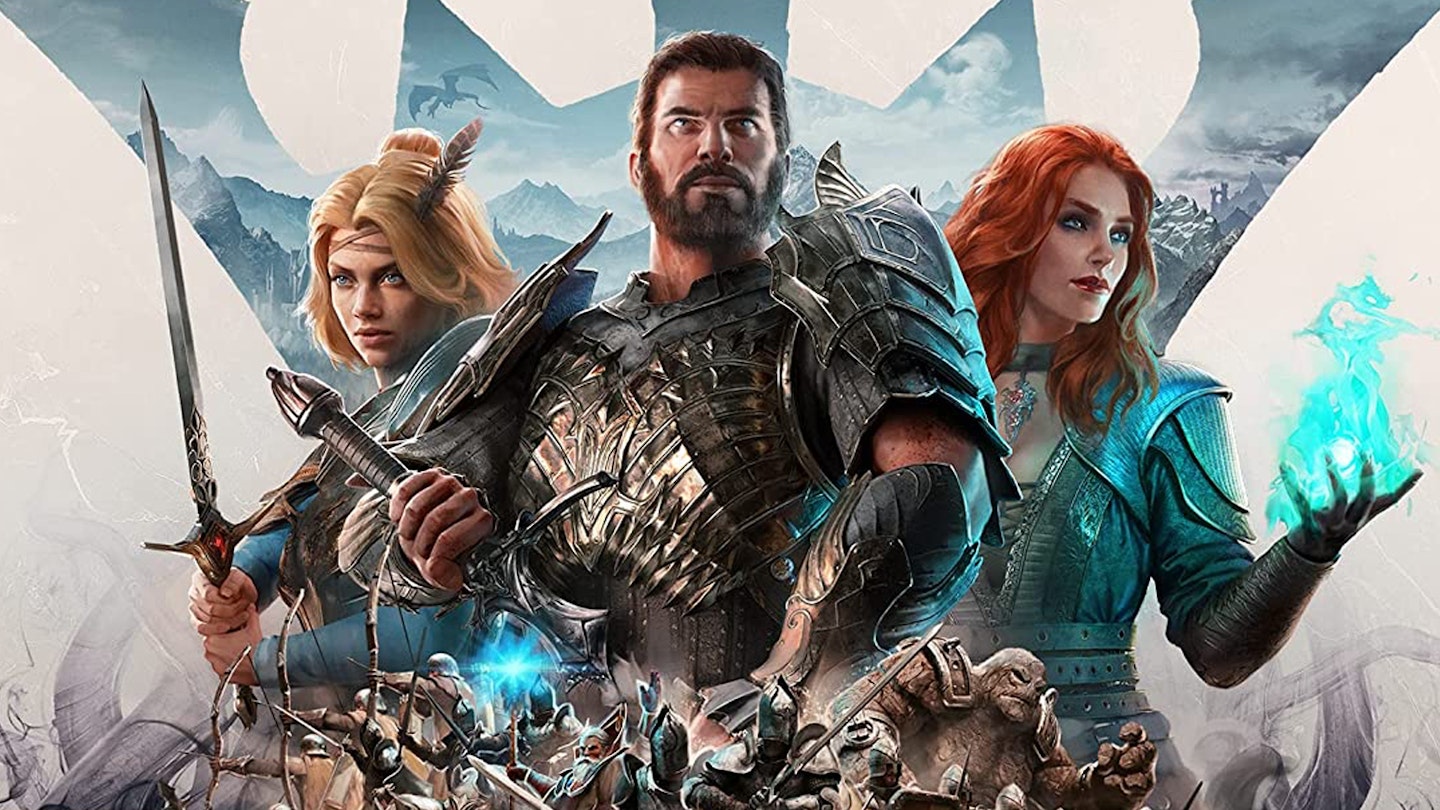Platforms: Xbox One, PS4, PC, Nintendo Switch
Developer 1C Entertainment makes a big deal of King's Bounty II being the first direct sequel to the original King's Bounty, a strategy RPG that launched on DOS PCs way back in 1990. As a marketing tactic, it's questionable – pinning this game on a niche 31-year old title feels like overselling the original's lingering influence, while also quietly ignoring that five other King's Bounty spin-offs have seen release since 2008. How much this sequel connects to that very first game is, at this point, effectively irrelevant.
That's just as well though, as King's Bounty II throws you into the narrative deep end. As one of three pre-defined characters – warrior Aivar, mage Katherine, or paladin Elisa – you're liberated from prison and summoned to the court of the king, and sent off to investigate wrongdoings in the kingdom of Nostria.

Cue a mix of meaty main quests and numerous side stories to pursue throughout a genre-standard fantasy world, where problems are often solved on the battlefield. However, rather than sending your hero into combat Skyrim style, King's Bounty II opts for turn-based battles, with your chosen character commanding an assortment of troops across an arena of hexagonal tiles.
While the strategic elements are solid, much else about the game feels rushed, sloppy, or simply unfinished.
Unlike Disgaea or Fire Emblem, where you'll issue all your squad's moves in one go, here initiative is determined on a unit by unit basis. This makes for pleasantly complex battles as you manoeuvre your soldiers – including human warriors, trained dogs of war, wild beasts, or even tamed undead and elemental spirits as you progress – to be perfectly placed to unleash a volley of arrows or retreat out of enemies' range of attack, reacting on the fly as enemy turns can up-end your plans. Once per round, you'll be able to utilise spells or skills as the commander, buffing allies or unleashing potentially tide-turning attacks against foes, but the outcome is mostly down to who and what you have deployed on the field.
While you'll be able to heal your units after battle, King's Bounty II uses a permadeath system for any units totally wiped out, forcing you to replace them from recruiters dotted around the world. It's an approach that some players will love for its exacting demands, but others will hate as it can mean reloading saves multiple times to try and pass a fight without losing a favoured unit, slowing down overall progress.

There's also a nice, if somewhat simple, alignment system that factors into both the RPG and combat aspects of the game. There are four traits to follow, split into binary oppositions – Anarchy versus Order, and Power versus Finesse. Certain story quests will come to decision points where your chosen solution will award points in one of those opposed categories, in turn unlocking more skills – for instance, going for a frontal attack on an bandit camp (Power) or gathering ingredients to summon war eagles to dive bomb them (Finesse). For your hero, you'll be able to mix and match responses to a certain degree, but eventually you'll be locked into certain ideals. Alignment impacts combat units too, with each one grouped under one of the four alignments. Build an army of Order-based human soldiers with Anarchy-based skeletons, and they might not play well together.
While the strategic elements of Kings Bounty II are solid, much else about the game feels rushed, sloppy, or simply unfinished. A key character is inconsistently called either "Seer" or "Scryer" depending on when you encounter him, the positioning of NPCs in dialogue scenes is all over the place – either extreme close-ups, barely in frame, or set too high or low – and the game is full of spelling and grammar errors. Movement speed feels plodding on foot, but jumping on a horse feels unwieldy, as if the developers never actually went back and moved the characters after implementing them. Most annoyingly, the narrative attempts to be non-linear but ends up just being confusing, taking too long to explain pivotal details that everyone bar the player seems to know, robbing them of any real engagement in the world.
And yet... there's something undeniably charming about King's Bounty II. Its old-school approach to exploration and side quests, with their simple binary alignment choices, is strangely endearing and the world itself feels familiar and somehow inviting. There's some nice environmental world-building going on too, with ambient conversations to listen in on and some nice attention to detail in the design of locations – even if all too often those locations lack any real depth, with buildings that can't be entered or simple ledges that can't be climbed. It's also nice to be able to wander the world without random monsters attacking you in real time, allowing you to focus on story quests unimpeded when you want to.
Ultimately, King's Bounty II is a game that feels cosy, despite its flaws – no threat to the likes of The Elder Scrolls or The Witcher that it so wants to emulate, but the kind of fantasy RPG you can happily lose yourself in for a few hours at a time, as long as you can overlook its lack of polish.
